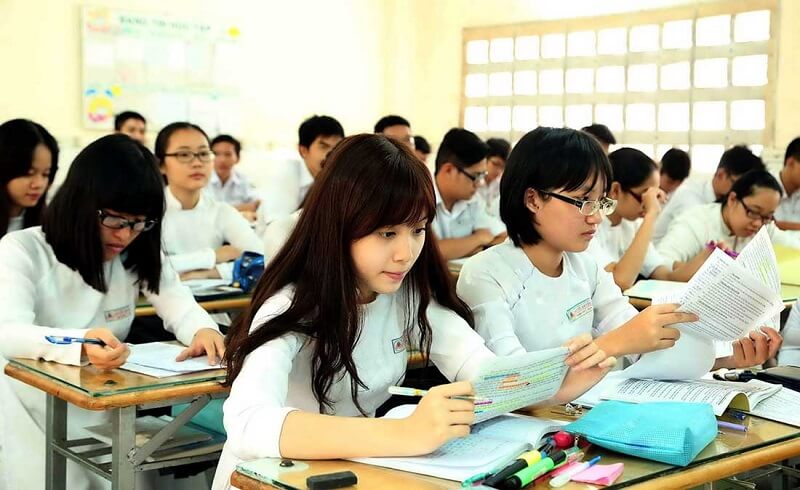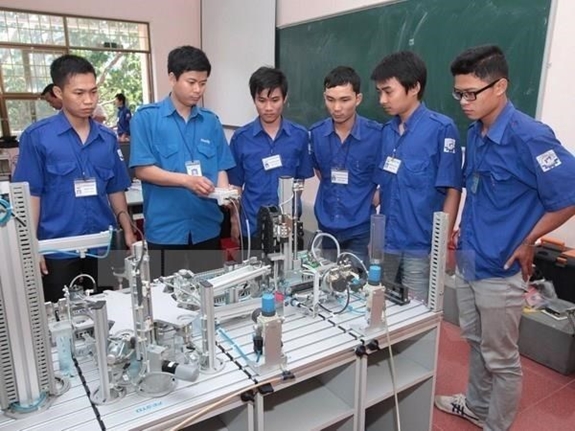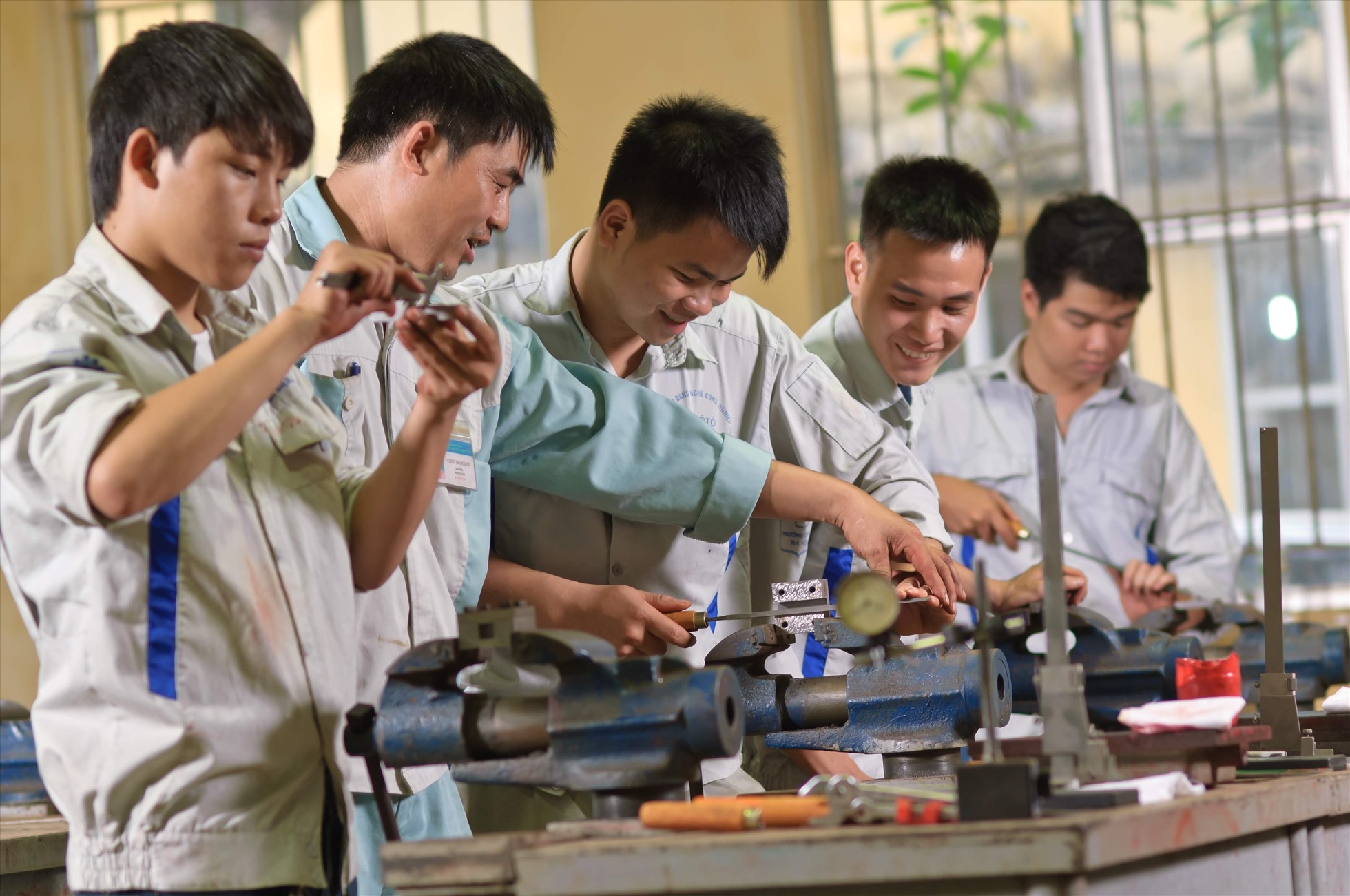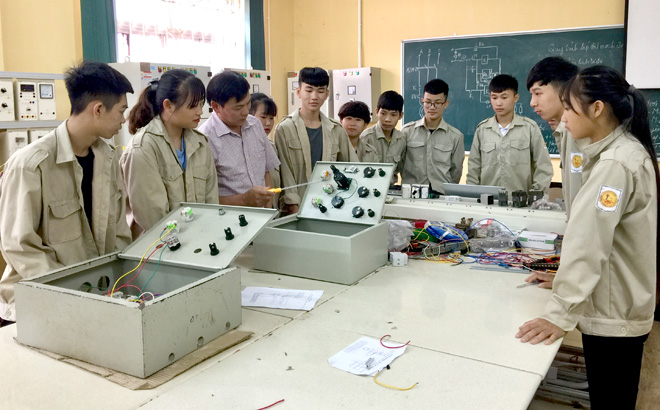Guidelines on general code of conduct in vocational education institutions in Vietnam
This is an important provision stipulated in Circular 38/2019/TT-BLDTBXH concerning guidelines for creating a safe, healthy, and friendly educational environment; preventing and combating school violence within vocational education establishments, issued by the Ministry of Labor, War Invalids, and Social Affairs of Vietnam on December 30, 2019.

Guidelines on general code of conduct in vocational education institutions in Vietnam (Illustrative image)
According to Circular 38/2019/TT-BLDTBXH, the general code of conduct in vocational education institutions in Vietnam are guided as follows:
1. General code of conduct
- Strictly comply with the provisions of the law on the rights and obligations of citizens, staff, public employees, teachers, employees, and students in vocational education institutions.
- Foster a healthy and positive lifestyle, showing concern, sharing, and helping others both in daily activities and studies at vocational education institutions.
- Protect and maintain the landscape of vocational education institutions; build a safe, friendly, green, clean, and beautiful educational environment.
- Staff, teachers, and employees must wear outfits suitable for the educational environment. Students must wear clean and tidy clothing per the vocational education institution's regulations. Parents of students and visitors to the vocational education institution must dress appropriately and respectfully.
- Do not smoke, consume alcohol, or use other banned stimulants within the vocational education institutions as per legal regulations and the internal rules and regulations of the vocational education institution.
- Do not disseminate, propagate, or comment on information or images against the Communist Party's line, the State's policies and laws, contrary to traditional customs, or negatively affecting the educational environment in any form.
- No cheating, deceit, defamation, incitement, harassment, coercion, threats, or violence against others.
- Do not harm the health, honor, or dignity of oneself, colleagues (classmates), and others. Do not damage the reputation of the collective.
2. Conduct of administrative staff
- Towards other administrative staff: Use proper language, respect each other's positions and duties; cooperate, be friendly, share responsibilities. Do not insult, disrupt unity, or shirk responsibility.
- Towards teachers and employees: Communicate properly, seriously, encourage, motivate, be exemplary, and accompany in work. Protect the reputation, honor, and dignity of individuals and promote the capabilities of teachers and employees. Do not act arrogantly, cause difficulties, offend, prejudice, favoritism, profit-seeking, shirk responsibility, conceal violations, or blame others.
- Towards students: Use standard and understandable language, show respect. Treat fairly, equally, kindly, responsibly, with love, compassion, and respect for differences. Listen attentively, encourage, and motivate at the right time. Do not insult, coerce, suppress, or abuse.
- Towards visitors for official business: Show respect, politeness, and proper communication. Listen attentively and be ready to support, cooperate, and share. Do not offend or cause difficulties or troubles.
3. Conduct of teachers and employees
- Towards administrative staff: Show respect, politeness, and proper communication. Be respectful, open to criticism, and follow directives and administration according to regulations. Do not insult, disrupt unity, or conceal wrongdoings of administrative staff.
- Towards colleagues: Use proper language, cooperate, show friendliness, and respect. Do not insult, disrupt unity, or shirk responsibility.
- Towards students: Use standard and respectful language and exemplary gestures. Give appropriate praise or criticism based on the situation. Treat fairly, equally, kindly, responsibly, with love, compassion, and respect for differences. Listen attentively, encourage and motivate at the right time. Do not behave, or speak in a way that insults, harms, suppresses, abuses, or conceals students' violations.
- Towards visitors for official business: Use proper language, show respect, politeness, friendliness, and be ready to guide and assist. Do not offend or cause difficulties or troubles.
4. Conduct of students
- Towards administrative staff, teachers, and employees: Show respect, politeness, honesty, and share. Comply with the school’s rules and regulations and the law. Do not fabricate information, offend the spirit, honor, or dignity or behave violently towards others.
- Towards fellow students: Use proper language, be friendly, honest, cooperative, helpful, and respect differences. Do not swear, insult, oppress, disrupt unity, fabricate, or form factions. Do not spread information to slander or affect the honor and dignity of fellow students.
- Towards visitors for official business: Show respect and politeness.
For details, see Circular 38/2019/TT-BLDTBXH, effective from February 15, 2020.
Thuy Tram
- Number of deputy directors of departments in Vietnam in accordance with Decree 45/2025/ND-CP
- Cases ineligible for pardon in Vietnam in 2025
- Decree 50/2025 amending Decree 151/2017 on the management of public assets in Vietnam
- Circular 07/2025 amending Circular 02/2022 on the Law on Environmental Protection in Vietnam
- Adjustment to the organizational structure of the Ministry of Health of Vietnam: Certain agencies are no longer listed in the organizational structure
- Vietnam aims to welcome 22-23 million international tourists in Vietnam in 2025
-

- Cases of dissolution of vocational education institutions ...
- 19:30, 14/10/2024
-

- Procedures for total division, partial division ...
- 14:30, 12/07/2024
-

- The technical and economic norms at vocational ...
- 21:03, 09/07/2024
-

- Regulations on management and use of finance and ...
- 09:35, 17/05/2024
-

- Policies on vocational education institutions ...
- 09:37, 29/02/2024
-

- Notable new policies of Vietnam effective as of ...
- 16:26, 11/04/2025
-
.Medium.png)
- Notable documents of Vietnam in the previous week ...
- 16:21, 11/04/2025
-
.Medium.png)
- Notable documents of Vietnam in the previous week ...
- 16:11, 02/04/2025
-
.Medium.png)
- Notable new policies of Vietnam to be effective ...
- 16:04, 02/04/2025
-
.Medium.png)
- Notable new policies of Vietnam effective from ...
- 14:51, 21/03/2025
 Article table of contents
Article table of contents
